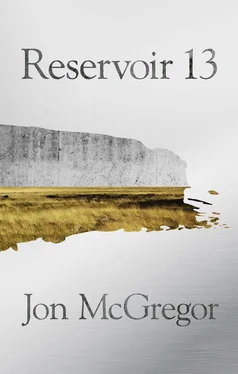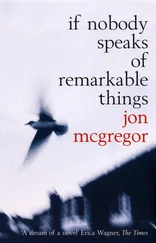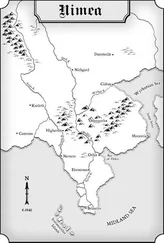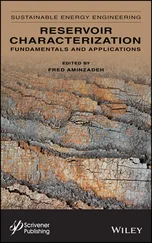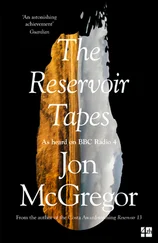The days shortened and the light grew hazy and thick. Garden furniture was taken in. The teasels along the banks of the river stood brown and tall, scratching stiffly at the air. In the evenings through the beech wood the last small coppers were seen, roosting head-down on the grasses beside the track. The sun angled low over the hill as Les Thompson led his cows out of the parlour towards the night-grazing paddock. He closed the gate behind them and headed back to the parlour for washdown. The metallic smell of coming rain rose up and the air felt charged and tight. There was a tingling before the first fat drops fell and they came as a letting go. Susanna Wright gave up her tenancy in the Close and moved in with Ruth Fowler above the shop in Harefield. They’d been together for months now, and those who’d noticed were only surprised it had taken so long. They’d made no great announcement but neither had they troubled to keep it to themselves. They carried on working their own allotments. On changeover days Irene was kept busy at the Hunters’ barn conversions. She bagged the bedding first and opened the windows so the mattresses would air. She mopped and hoovered and wiped, moving back and forth between the three units as the floors dried. She sang as she worked. There was rain forecast but for now the air blowing through was warm and heather-fresh. In the smaller bedroom of the end conversion she stood and said a prayer, as she had done for years now. She felt the old urge to check under the bed. She changed all the sheets and duvets, put welcome baskets on the kitchen counters, arranged fresh flowers in vases and jugs. She pulled the windows to and locked the doors. It was a simple enough job but she made sure it was done well. People knew they could count on her. She pocketed the keys and walked back down the driveway, her feet crunching in the gravel. An hour yet until the bed-and-breakfast guests were due at her place. Time enough to sit. A rare enough treat, still.
At the allotments the first frosts edged the winter crops and broke open the soil. Cathy had thought Richard would be in touch since selling his mother’s house, and might even have found a reason to come back to the village. But there had been nothing, and when she called his number there was a strange dialling tone that suggested he was somewhere abroad. He didn’t answer until the third time she called, and after they’d spoken for a few minutes she said that she missed him. She’d realised she missed him, she said. The river was high and thick with peat and there were grayling in number for those who knew where to look. Ian Dowsett was out in the channel between millponds, working a weighted nymph around the rocks and waiting for the chance to strike. The cold was already seeping inside his waders. It was hard to stay out in the water as long as he once would have done. The reservoirs were high and the wind funnelling down the valley pushed the water in waves over the tops of the dams. At the foot of the churchyard yew the goldcrests pressed close together against the chill. The missing girl had not yet been forgotten. The girl’s name was Rebecca, or Becky, or Bex. She had been looked for, everywhere. She had been looked for in the lambing sheds on Jackson’s farm, people moving through the thick stink of frightened ewes and climbing up into the lofts and squeezing behind the stacks of baled hay, and in the darkness outside great heaving lungfuls of fresh air were taken as people made their way across the field to the other barns. She had been looked for in the caves, and in the quarries, and in the reservoirs and all across the hills. It was no good. Dreams were had about her, still. There were dreams about her catching a bus to a railway station and boarding a train which ran out of control and hurtled off the rails. There were dreams where she ran down to the road and met a man with a car who took her to a ferry. Dreams where she ran and just kept running, to the road, to a bus station, to a city where she could find enough places to hide. There were dreams about finding her on the night she went missing, stumbling across her on the moor in the lowering dark and helping her back to her parents. In the dreams the parents said thank you, briefly, and people muttered something about it being no problem at all.
The clouds skated across the face of the moon and the silver light on the fields flushed in and out of the hollows. A blackbird moved under Mr Wilson’s hedge, poking around in the leaf litter for something to eat. At the river the keeper broke open the ice on the millpond so no children would be tempted to test it out. He had a good length of scaffold pole to pound down and it took a few strikes to crack through. There were slabs of glassy ice turning on the black water. In the eaves of the church the bats were folded deeply in their hibernation and the air around them was still. In his studio Geoff Simmons washed the day’s work from his hands, the hardened clay dissolving in milky streams down the plughole and into the clay trap beneath, the clear water rising to the outlet and flowing cleanly along the open drain outside. The stems of the coppiced willow stools up on the Hunters’ land gleamed red and gold in the narrow winter light. There was carol singing in the church, with candles and the smell of cut yew and holly. Molly Jackson sang a solo verse of ‘Silent Night’, her voice trembling a little while her parents watched from opposite sides of the aisle. When she finished everyone looked down at their sheets to find the words of the second verse. The sound of their singing carried out into the night, down to the river and the school and the cricket ground. The river ran empty and clear, turning beneath the bridge. There were clouds and the evening was dark and people moved through the streets with their heads lowered. From the houses the lights shone warmly and in the square the conversations spilled out from the pub. Car doors slammed and someone called goodnight and the headlights swept across the road, past the allotments, around beyond the beech wood and the visitor centre and away through the hills. The hills were a dark silhouette. The reservoirs were a flat metallic grey. At the quarry the rope-swing hung above the water. From his bed Jackson listened to the singing in the church. All was calm, all was bright.
Bamford Quaker Community, Barbara Crossley, Benjamin Johncock, Chris Power, David Jones, Edward Hogan, Éireann Lorsung, Fairholmes Visitor Centre, Gill O’Neill, Gillian Roberts, Helen Garnons-Williams, Jane Chapman, Jin Auh, Julian Humphries, Katrin Moye, Katy Wakelin, Kim Day, Mark Day, Melissa Harrison, Nicky Wilkinson, Nicola Dick, Nigel Redman, Peak District National Park Media Centre, Richard Birkin, Rosie Garton , Sarah-Jane Forder, Superintendent Jonathan Morgan, Tracy Bohan.
Jon McGregor is the author of four novels and a story collection. He is the winner of the IMPAC Dublin Literature Prize, Betty Trask Prize and Somerset Maugham Award, and has twice been longlisted for the Man Booker Prize. He is Professor of Creative Writing at the University of Nottingham, where he edits the Letters Page , a literary journal in letters. He was born in Bermuda in 1976, grew up in Norfolk, and now lives in Nottingham.
IF NOBODY SPEAKS OF REMARKABLE THINGS

Winner of the Betty Trask Award
Winner of the Somerset Maugham Award
Longlisted for the Man Booker Prize
On a street in a town in the North of England, ordinary people are going through the motions of their everyday existence — street cricket, barbecues, painting windows … A young man is in love with a neighbour who does not even know his name. An old couple make their way up to the nearby bus stop. But then a terrible event shatters the quiet of the early summer evening. That this remarkable and horrific event is only poignant to those who saw it, not even meriting a mention on the local news, means that those who witness it will be altered for ever.
Читать дальше
Конец ознакомительного отрывка
Купить книгу
